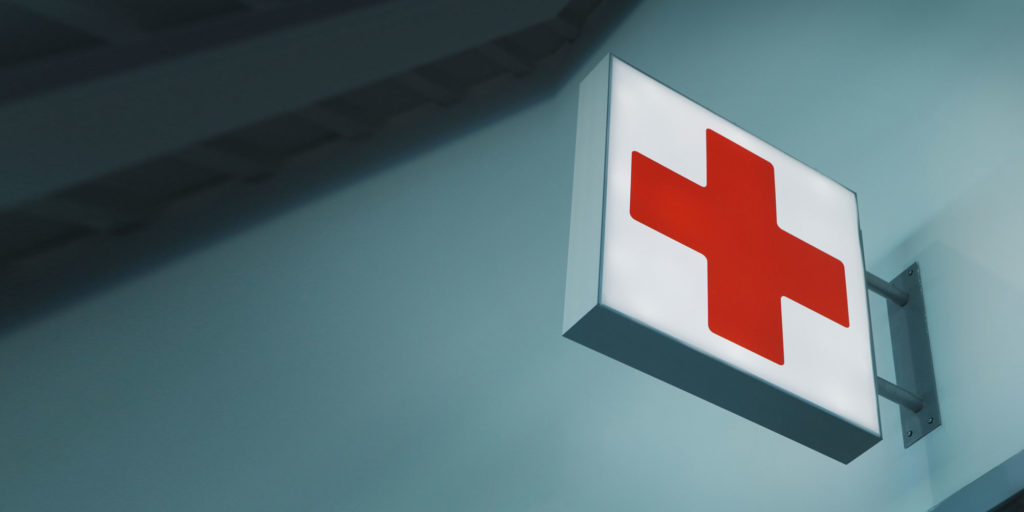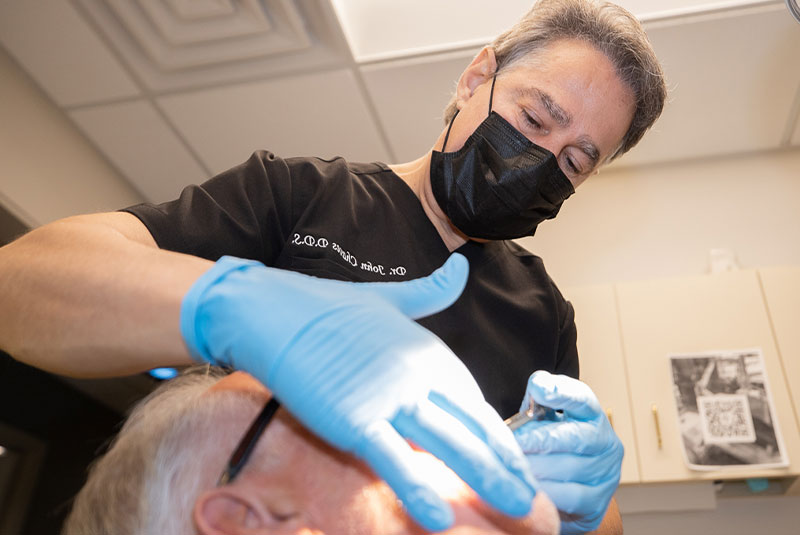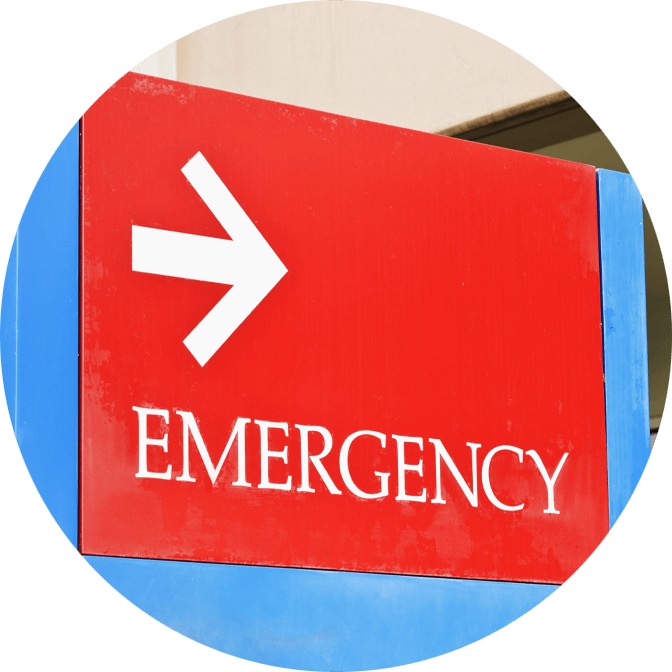

Dental emergencies can occur unexpectedly, causing intense pain and discomfort. Identifying these emergencies and seeking immediate emergency dental care can prevent further complications, preserve oral structures, and alleviate pain.
At our Los Angeles emergency dental office, our Woodland Hills emergency dentist wants patients to distinguish when they’re experiencing a dental emergency so they can seek timely care. Call 818-491-7294 immediately if you’re experiencing a dental emergency.
If you require an emergency dentist near you in Woodland Hills, CA, our team is here to promptly relieve your pain and restore your oral health.

Recognizing and identifying different types of dental emergencies is critical for maintaining good oral health and well-being. Dental emergencies can arise suddenly, causing severe pain, discomfort, and potential long-term damage if not addressed. You can take immediate action by identifying and learning what to do in a dental emergency to minimize the risks associated with oral health issues.
Intense and persistent dental pain can indicate a dental emergency. If you’re experiencing excruciating pain that doesn’t subside with over-the-counter pain relievers, it’s wise to contact our Woodland Hills emergency dentist immediately. A severe toothache may indicate an infection, abscess, or tooth fracture that requires professional attention.
Swelling and bleeding gum tissue are common signs of gum disease but can also indicate a dental emergency. If your gums are swollen, tender, and bleeding excessively, it could indicate an advanced gum infection or an abscess. Prompt treatment is necessary to prevent the infection from spreading.
Having a tooth knocked out due to an accident or injury is undeniably a dental emergency. Knocked-out teeth are a form of dental trauma that requires immediate attention. Try to locate the tooth, handle it by the crown (avoid touching the root), gently rinse it with water if dirty, and attempt to reinsert it into the socket.
If that’s not possible, place the tooth in milk or a tooth preservation kit and see a dentist immediately. Time is of the essence for successful reimplantation.
A loose or dislodged tooth are dental emergencies that require immediate attention. If a tooth is partially knocked out of its socket, try to gently push it back into place and bite down on a clean piece of cloth to hold it in position. Seek dental care at our Los Angeles emergency dental office as soon as possible to secure the tooth and prevent further damage.
Oral bleeding that doesn’t stop after a reasonable amount of time or is excessive may indicate a dental emergency. If you have uncontrollable bleeding from the mouth, it could be a sign of a severe injury, advanced gum disease, or other underlying issues. Contact our dentist at 818-491-7294 or visit a local emergency dental clinic.
A broken, fractured, or chipped tooth requires immediate attention. If you have a tooth that is cracked, chipped, or broken, it’s essential to see a dentist immediately. Depending on the severity of the damage, treatment options may include dental bonding, fillings, or even a dental crown to restore the tooth’s integrity and functionality.
An oral abscess is an infection that occurs around the root of a tooth or in the space between the teeth and gums. Symptoms can include severe, persistent, throbbing toothache, sensitivity to hot and cold, fever, swelling in your face or cheek, tender, swollen lymph nodes under your jaw, and a rush of salty, foul fluid in your mouth followed by pain relief if the abscess ruptures. Immediate treatment is necessary to prevent the infection from spreading and causing further complications.
Tooth sensitivity that occurs suddenly and is severe could indicate a broken filling, a tooth fracture, or an infection. In some cases, it could mean you have an exposed root due to receding gums or periodontal disease.
Swelling in the face or neck can be caused by an infected tooth or an impacted wisdom tooth. In some cases, it could be due to cellulitis, an infection of the skin and tissues beneath the skin. Infections causing facial swelling can lead to severe complications, including tooth loss, if not treated promptly.

We offer several types of sedation to alleviate dental anxiety and ensure your ultimate comfort.

Dental phobia is a common fear or anxiety related to dental procedures and visits to the dentist’s office. Unfortunately, dental emergencies can exacerbate dental phobia, making it challenging for individuals to seek prompt treatment. Overcoming dental anxiety is essential for maintaining good oral health and seeking timely treatment during dental emergencies.
This can be achieved by:
Dental emergencies include severe tooth pain, knocked-out teeth, loose or dislodged teeth, persistent oral bleeding, broken or fractured teeth, abscesses, and severe gum infections. These conditions require immediate attention from a dentist to prevent further complications and alleviate pain.
Yes, a broken tooth can often be repaired using various dental treatments to relieve severe pain. The appropriate treatment will depend on the extent of the damage. Your dentist will evaluate your situation to determine the best solution.
If a tooth is knocked out, it’s best to act quickly. Follow these steps:
Identifying dental emergencies is essential for protecting oral and whole-body health. By identifying dental emergency signs, such as severe tooth pain, knocked-out teeth, or persistent oral bleeding, you can take immediate action and seek professional dental care.
Contact our Woodland Hills dental office at 818-491-7294 to schedule an appointment and get the care you need.
I understand the information disclosed in this form may be subject to re-disclosure and may no longer be protected by HIPAA privacy regulations and the HITECH Act.
